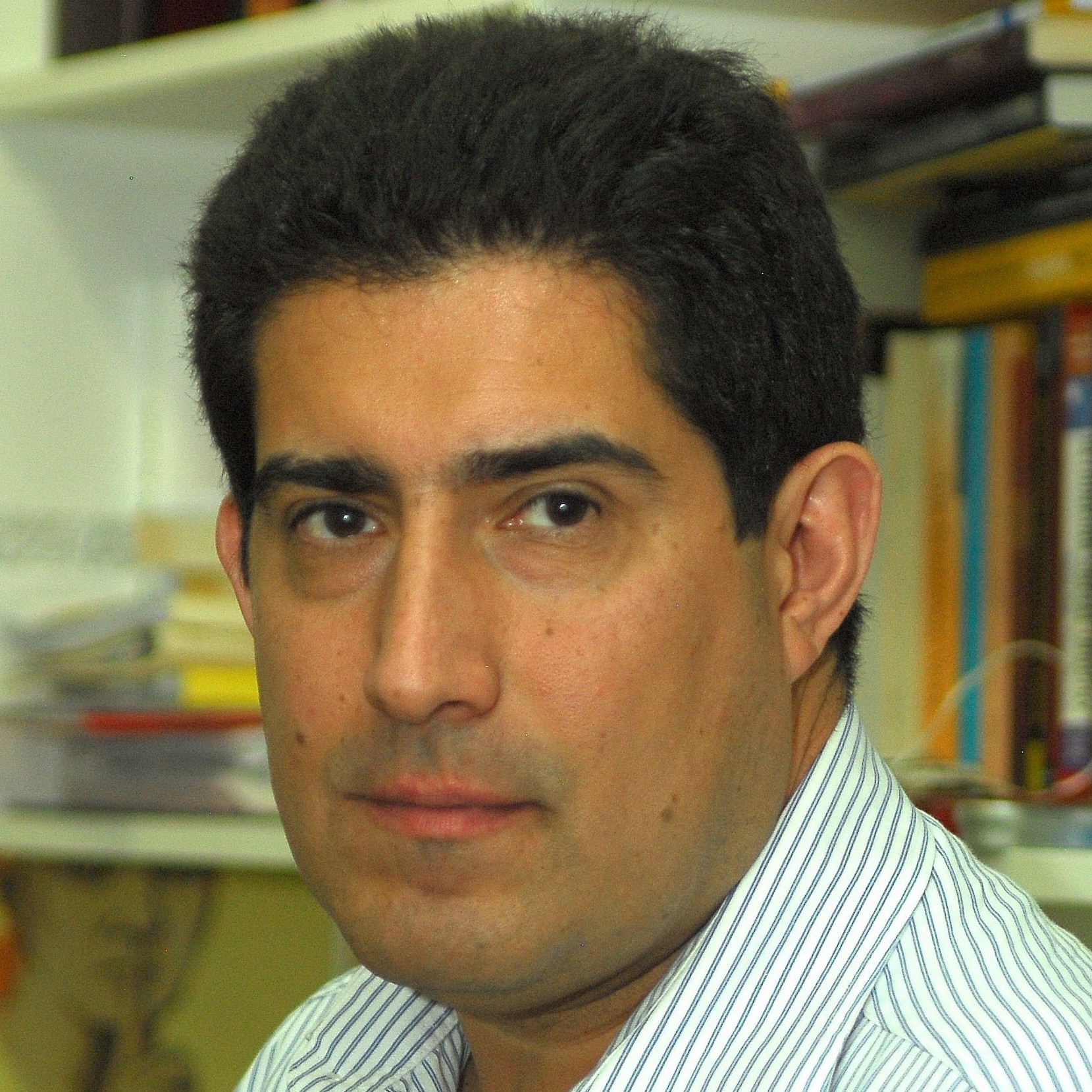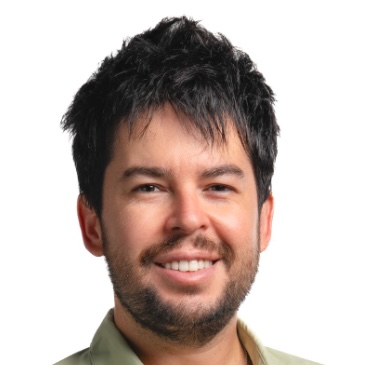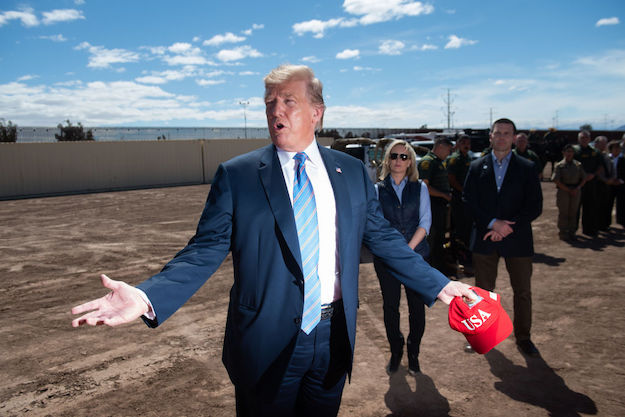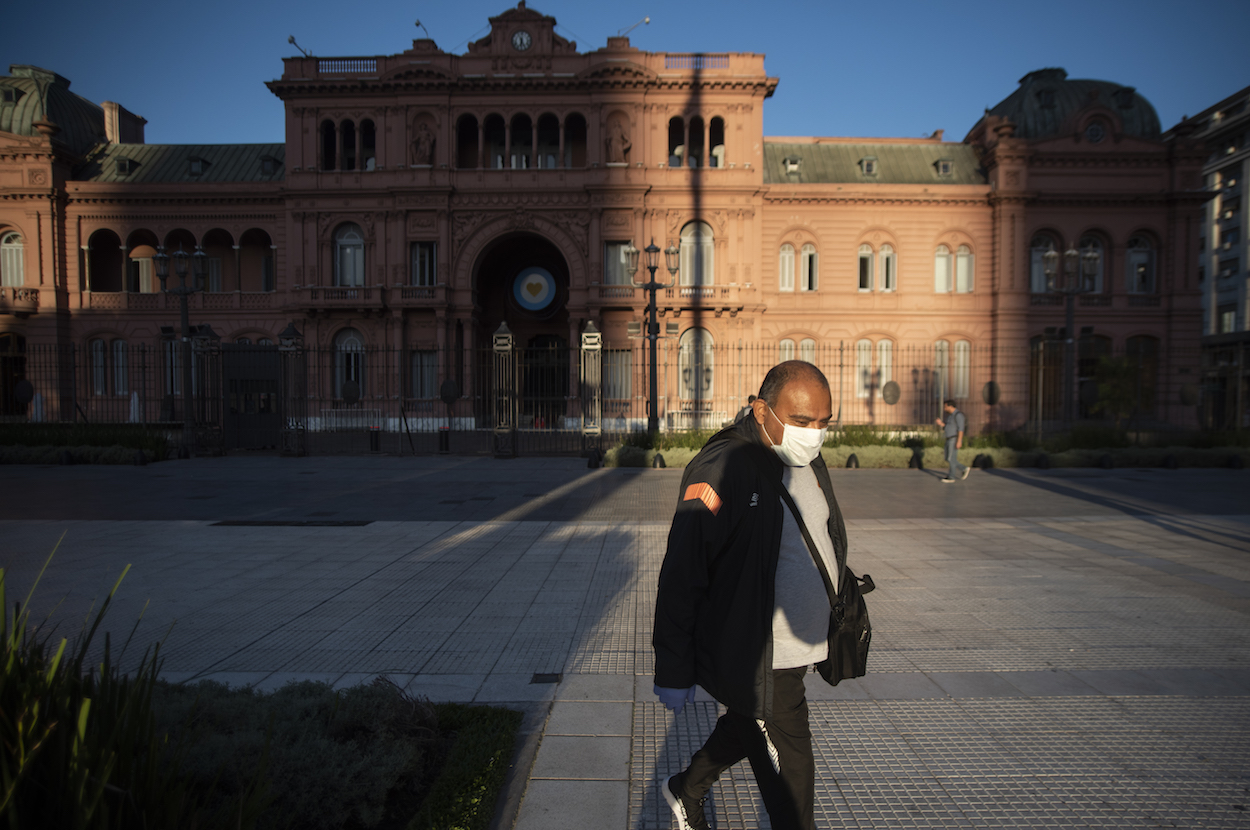To: President Donald J. Trump
Date: April 16, 2019
Mr. President, you have correctly noted that the United States is not prepared to receive a huge influx of refugees. But the countries that make up Central America are going down the wrong path at varying speeds. Things could, in fact, get significantly worse – especially if your administration makes the wrong decisions in the months ahead.
We know you have appointed a new acting secretary of homeland security, and we have heard the rumors that you are preparing an “even tougher” strategy for dealing with immigration in general – and the region in particular. We hope that by providing a short survey of the region here, we can help shed light on the right path to follow.
Indeed, much about Central America is greatly misunderstood, including its relative size. Though Central America’s six Spanish-speaking countries are themselves small, they have a combined population of 45 million and a gross domestic product of $290 billion. If they were a single country, that would give them the sixth-largest economy in Latin America and a population surpassed in the region only by Brazil, Mexico and Colombia. This is, in other words, a much bigger and more important part of the world than some people appreciate. If the situation deteriorates, it could create a major humanitarian crisis that no border wall – no matter how tall – will be able to contain.
The good news is that these countries are not yet failed states and democracy can still be saved. There are many people in the region working to keep democracy alive and to make their governments work more efficiently. Your administration should actively engage with those initiatives. Cutting aid and threatening refugees with tough policies when they arrive in the U.S. will not work. No matter how badly ICE might treat them, many refugees feel they are safer and better off than staying behind. You might have an incendiary and tough position on migrants, but next to the street gangs and drug lords, you look like Oscar Wilde’s selfish giant.
With the exception of Costa Rica, Central American democracies are relatively young. Honduras and Guatemala democratized in the early 1980s. Nicaragua and El Salvador made the transition in the 1990s, after their decades-long civil wars. After the collapse of the Manuel Noriega regime (1983-1989), Panama had democratic elections in 1994. Though there was real democratic progress in the 1990s, democracy has been on the retreat in most countries over the past decade. Weak political institutions have allowed for a concentration of power in the hands of presidents with authoritarian inclinations. Today, there is a clear reversal of democracy in Nicaragua and Honduras, while corruption has severely undermined democratic institutions in Guatemala, El Salvador, Panama and even Costa Rica, the region’s former star performer.
What follows is a primer – short, we promise – on each of these countries:
Nowhere in the region has democracy retreated more than in Nicaragua. The peaceful transfer of power in 1990 from Daniel Ortega, the leader of the Sandinista National Liberation Front (FSLN), to opposition leader Violeta Chamorro nourished hopes of democratization. But Nicaragua has recently experienced the rise of competitive authoritarianism under the hegemonic FSLN party, headed by a much older and far less democratic Daniel Ortega.
To be sure, Nicaragua’s democracy was already on a downward slope before Ortega came back to power in early 2007. Institutions weakened under the corrupt presidency of Arnoldo Alemán (1997-2002). After brokering a pact with Ortega, his main political rival, Alemán agreed to pass constitutional reforms, including a lower vote threshold to win presidential elections without the need for a runoff, in exchange for immunity from corruption prosecution. The deal paid off for Ortega – who won the presidency in 2006 with only 38% of the vote – and for Alemán, when the FSLN-packed Supreme Court overturned his 20-year jail sentence for corruption. Ortega won re-election in 2006, 2011 and, amid accusations of vote-tampering, in 2016. That year, Ortega went full House of Cards and named his wife, Rosario Murillo, as his vice-presidential candidate. To ensure an easy victory, Ortega also prosecuted political opponents and used the nation’s institutions as tools for his re-election campaign. It would be fair to say that the way the 2016 elections were conducted put the final nail in the coffin for Nicaraguan democracy. The protests that unfolded in 2018 – which cost the lives of more than 500 people – brought back memories of the civil war that ended with the 1990 election.
In Honduras, President Juan Orlando Hernández of the conservative National Party has also led a transition to competitive authoritarianism. The downhill road for democracy in Honduras began under President Manuel Zelaya (2006-2009) of the Liberal Party, who surprisingly transformed from a moderate pragmatist to a militant supporter of the leftwing populist former president of Venezuela, Hugo Chávez. When Zelaya tried to manipulate elections to remain in power after the end of his four-year term, he was swiftly removed from office by the military on order from the Supreme Court. Zelaya denounced his removal as a coup, just as his detractors – including most his own party – alleged that by overthrowing him, they had preempted the breakdown of democracy. In the 2009 presidential elections, Hondurans elected National Party candidate Porfirio Lobo (2010-2014). Corruption ran rampant under Lobo while drug cartels began to openly operate in the country. In late 2013, Hernández was elected president. He influenced the Supreme Court to deem presidential term limits unconstitutional – successfully achieving the same thing that got Zelaya overthrown. Hernández was re-elected in 2017 in an election with extensive vote tampering and outright fraud.
The decline of democracy in Honduras has run parallel to mounting links between the National Party and drug-trafficking organizations. In 2015, DEA agents arrested Fabio Lobo, son of the former president, in an undercover operation in Haiti for cocaine trafficking. He is serving a 24-year sentence in the U.S. In late 2018, former National Party legislator Tony Hernández, the president’s brother, was arrested in Miami. He is accused of being a kingpin of cocaine trafficking in Honduras (he allegedly branded his initials “TH” on his products). He awaits trial. Other Honduran legislators, from the Liberal and National parties, have also been brought to the U.S. to face trial for drug trafficking.
The significant democratic consolidation progress Guatemala made in the 1990s has been severely undermined by endemic corruption. In 2015, the International Commission Against Corruption and Impunity in Guatemala (CICIG), a United Nations anti-corruption effort, uncovered a scandal – La Línea – that triggered massive protests against the government of Otto Pérez Molina (2012-2015). Pérez Molina resigned a few days before the election and became the first sitting Latin American president to be sent to jail before the end of his term. Fed up with corruption, a majority of Guatemalans cast ballots for Jimmy Morales, a television personality with no prior political experience. Morales won 66% of votes in the runoff on a “neither corrupt nor a thief” platform.
But Morales’ election showed that, sometimes, the cure might be worse than the disease. Shortly after being inaugurated, Morales became the subject of a new CICIG investigation for irregular campaign financing. The investigation then focused on Samuel Morales and José Manuel Morales, the president’s brother and son, respectively, for embezzlement of public funds. Morales responded by unilaterally ending the CICIG’s mission in the country. The government has also recently gone after Thelma Aldana, the prosecutor who led the La Línea investigation – and a prospective candidate to replace Morales in elections this year.
In El Salvador, 30 years of rightist ARENA and leftist FMLN governments have also given way to huge corruption scandals. At the time of his death in 2016, former ARENA President Francisco Flores (1999-2004) was under house arrest, accused of misappropriating $15 million in donations from Taiwan. His successor, Antonio Saca (2004-2009), also from ARENA, is serving a 10-year prison sentence after he confessed to embezzling $300 million in taxpayers’ money. To make things worse in a country where 30% of the population lives in chronic poverty, President Mauricio Funes (2009-2014) of the FMLN is accused of misappropriating $351 million in public funds – some of the cash allegedly paid for the luxurious lifestyle of his mistress, La Michy. Before being arrested, Funes escaped to Nicaragua, where he is currently under the protection of President Ortega. Unsurprisingly, Salvadorans voted en masse for 37-year old Nayib Bukele, an independent candidate who will assume office on June 1. Bukele ran under the GANA party label, a minor party that only holds 10 seats in the 84-seat unicameral Congress. Though Bukele deserves the benefit of the doubt, GANA has been involved in corruption scandals in the past.
Even Costa Rica and Panama, the more successful cases of democratization in Central America, have seen the quality of their democracies deteriorate due to corruption. In Costa Rica, the Cementazo scandal, involving shady dealings by the state-owned Banco de Costa Rica, has revealed influence-peddling networks including politicians from across the ideological spectrum. In the 2018 presidential election, for the first time in six decades, the candidate of the traditional market-friendly and moderate National Liberation Front (FLN) failed to make it to the runoff. Newcomer maverick Fabricio Alvarado, a 44-year old conservative and evangelical firebrand, campaigned against the political establishment and made it to the runoff, receiving 39% of the vote.
In Panama, corruption is the driving force heading into May 5 presidential and legislative elections. Odebrecht, the Brazilian construction giant involved in the Lava Jato scandal, allegedly gave over $100 million in bribes during the presidencies of Martín Torrijos (2004-2009) and Ricardo Martinelli (2009-2014) – who was extradited from the U.S. to Panama in 2017 to face trial on unrelated charges. Outgoing President Juan Carlos Varela reluctantly admitted that his Panameñista Party had received $700,000 in illegal “donations” when he ran as Martinelli’s vice-presidential candidate in 2009.
In conclusion, Mr. President:
Rather than wait for things to get worse, your administration should actively engage with those groups and individuals in the region who are working to avert a crisis. The challenge to strengthen democracy in the region is enormous. Fortunately, it is not too late to act. It will be a costly endeavor, but not doing it will be far costlier. A humanitarian crisis will trigger, using your own characterization, a real “caravan invasion” that no border wall will be able to contain. The only thing worse than not being able to deliver on your campaign promise to build a “impenetrable” and “beautiful” wall on the southern border would be to build a wall that fails to contain an influx of refugees fleeing failed states in Central America.
—
Navia is a contributing columnist for AQ, a professor of liberal studies at NYU and a professor of political science at Diego Portales University in Chile. You can follow him on twitter @patricionavia
Perelló is a Ph.D. candidate in politics at The New School for Social Research. You can follow him on twitter @lucasperello










